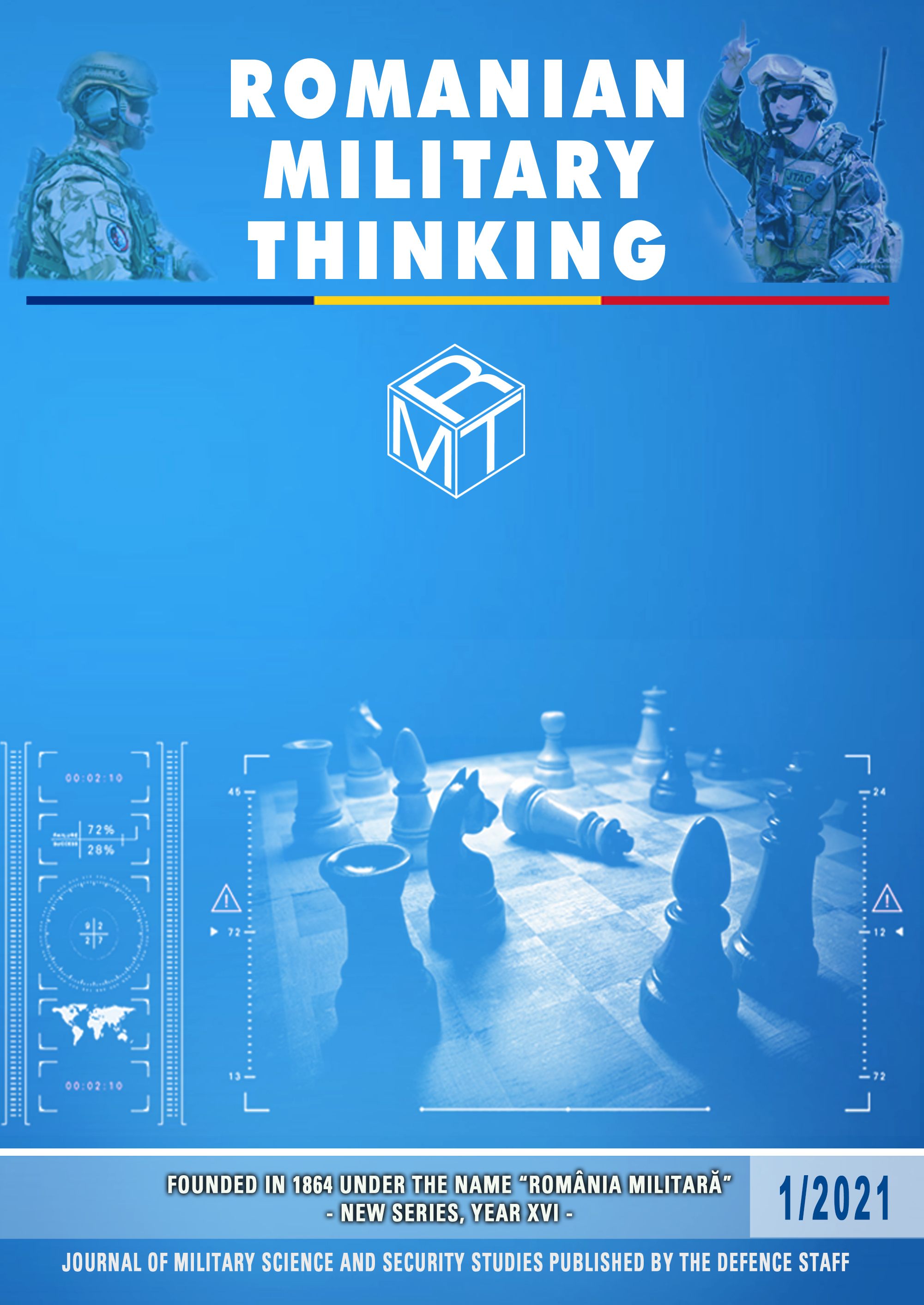Conceptualisation, Operationalisation and Connection between “Hybrid Threats” and “Security Culture”
Conceptualisation, Operationalisation and Connection between “Hybrid Threats” and “Security Culture”
Author(s): Adrian Lesenciuc, Corneliu Mugurel CozmanciucSubject(s): Security and defense
Published by: Centrul tehnic-editorial al armatei
Keywords: hybrid threats;hybrid warfare;information warfare;security culture;national resilience;
Summary/Abstract: To date, the potential for addressing hybrid threats through a strong security culture remains underdeveloped, while the nation-wide responses are still lacking clarity and comprehensiveness. The present paper presents the link between a wide range of emerging threats that are currently challenging countries and institutions and the potential of mitigating such issues through security culture while building and consolidating a resilient national system. Continuously under the threshold of formally declaring warfare, hybrid threats have been demonstrating the futility of responses implicating only institutions with responsibilities in the fields of security and defence. Subsequently, we argue that cultivating measures, procedures and good practices for boosting security culture through a whole-of-government approach would ensure a useful framework for tackling such challenges, while also aiming for a joint civilian-military response. The hybrid toolbox needs to be pre-empted by active and passive measures, the ability of societies and institutions to bounce back from shocks being sustained by both resilience and robust measures that would enhance civil and military preparedness. By assessing the rise of hybrid threats and their position in the Russian strategic thinking and comparing the Western doctrines mirroring these challenges, we obtain an overview on the differences in concept and operations that are currently lacking clarity. Considering that national vulnerabilities have now global implications, sovereign action must be effectively completed by alliances and partnerships, while also keeping in mind the made-to-measure hybrid actions with specific and narrow targets. Through examining the components of hybrid and information warfare, we stress the fact that it is high time to have and use a unified vocabulary in support of building a common security culture, necessary for this ever-changing security landscape.
Journal: Romanian Military Thinking
- Issue Year: 2021
- Issue No: 1
- Page Range: 70-81
- Page Count: 12
- Language: English

